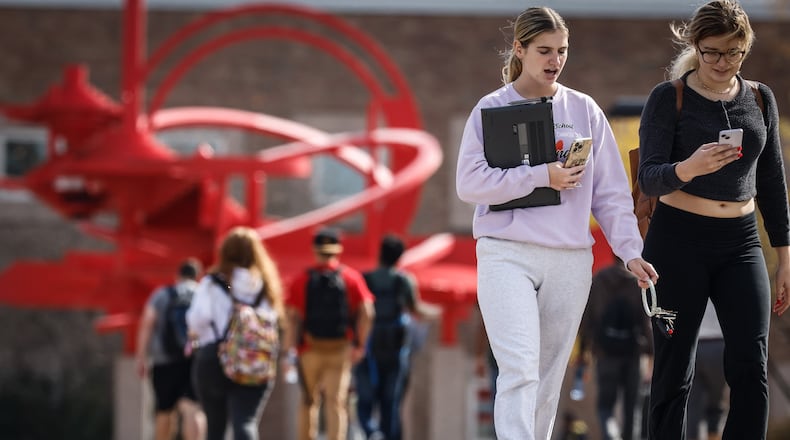WSU provost Amy Thompson, whose background is in public health, and Huma A. Bashir, associate professor and chair of the Department of Human Services and interim chair of the Department of Social Work, are leading the task force.
“We started this last fall when I arrived, really due to the fact that we’ve seen an uptick on many college campuses in mental health needs of students, faculty, and staff,” said Thompson, who arrived from the University of Toledo last fall.
According to Kaiser Family Foundation polling, nearly 33% of Ohio adults reported anxiety or depression symptoms. Thompson said mental health issues are a leading cause of students dropping out of college nationwide.
Thompson and Bashir said the impact from COVID-19 and the isolation it created for many people is still impacting universities.
The committee is also looking at helping students with life skills, such as coping with stress, time management, communicating needs, eating well and work ethic.
Bashir and Thompson said coming back to on-campus life after being remote was hard for some staff members. Bashir said some people are still dealing with loss and grief after the pandemic, which can appear in unexpected outbursts.
The committee is also trying to make sure the entire campus is aware of what resources are available for those who are struggling, including mental health therapy, financial aid and other services.
Thompson noted the campus got a $40,000 scholarship to work with the JED Foundation Campus program, which specifically works to prevent suicide. The campus will be able to use the money to build a custom prevention program for Wright State.
The university is also applying for and considering other grants for this project.
Bashir said even before the pandemic, there was an epidemic with mental health on college campuses. Creating a “culture of care” at Wright State where people on campus know how to take care of each other and themselves would help students and professors, she said.
You can’t create a culture of care with just one person, Bashir said, because humans are social creatures who exist in communities. How the community works impacts mental health.
“It’s important to take care of each other, to create this culture of care,” Bashir said.
About the Author

